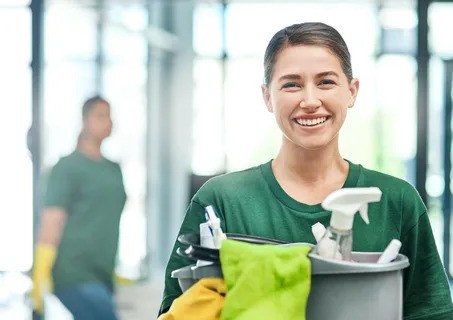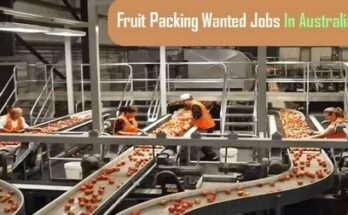Australia Cleaner Jobs
Australia’s cleaning industry is a vital yet often overlooked sector that ensures homes, workplaces, and public spaces remain safe, hygienic, and welcoming. From bustling city offices to coastal holiday rentals, cleaners play a critical role in maintaining Australia’s high standards of cleanliness. The industry has seen significant growth in recent years, driven by heightened hygiene awareness post-pandemic, tourism recovery, and an aging population. Whether you’re seeking flexible part-time work, a stable full-time role, or a pathway to entrepreneurship, cleaning jobs in Australia offer diverse opportunities. This guide explores the landscape of cleaning careers Down Under, covering roles, qualifications, earnings, challenges, and future trends.
The Role of a Cleaner in Australia
Cleaners perform a wide range of tasks depending on their workplace and specialization. Key responsibilities include:
- Routine Cleaning: Sweeping, mopping, vacuuming, dusting, and sanitizing surfaces.
- Deep Cleaning: Carpet shampooing, window washing, and pressure washing outdoor areas.
- Waste Management: Emptying bins, recycling, and safely disposing of hazardous materials (e.g., medical waste).
- Specialized Services: Disinfection of high-touch areas, post-construction cleanup, or biohazard remediation.
- Equipment Use: Operating industrial-grade cleaners, steam machines, or floor polishers.
Common Work Environments:
- Domestic Cleaning: Private homes, Airbnb rentals, and apartment complexes.
- Commercial Cleaning: Offices, retail stores, schools, and hospitals.
- Industrial Cleaning: Factories, warehouses, and construction sites.
- Hospitality: Hotels, resorts, and event venues.
- Niche Markets: Solar panel cleaning, crime scene cleanup, or strata (building) maintenance.
Shifts often include early mornings, evenings, or weekends to avoid disrupting business operations. The job requires physical stamina, attention to detail, and reliability.
Demand for Cleaners in Australia
Australia’s cleaning sector is thriving due to several factors:
- Post-Pandemic Hygiene Standards: Businesses and households prioritize regular disinfection.
- Tourism Rebound: International tourists and domestic travelers drive demand for hotel and short-term rental cleaning.
- Aging Population: Increased need for domestic cleaners to support elderly Australians.
- Construction Boom: Post-build cleaning services for new residential and commercial projects.
- Corporate Growth: Expanding office spaces in cities like Sydney and Melbourne require maintenance.
According to the Australian Bureau of Statistics (ABS), the cleaning services industry employed over 280,000 workers in 2023, with demand strongest in urban hubs such as Sydney, Melbourne, Brisbane, and Perth. Regional areas also offer opportunities, particularly in healthcare and aged care facilities.
Requirements and Qualifications
While many cleaning roles are entry-level, specific requirements vary by sector:
- Certifications and Checks:
- Police Check: Mandatory for roles in schools, healthcare, or childcare.
- Working With Children Check (WWCC): Required for cleaners in educational or youth-focused environments.
- White Card: Essential for construction site cleaners (covers workplace safety training).
- Chemical Handling Certification: Knowledge of safe use and storage of cleaning agents (e.g., through TAFE courses).
- Skills: Time management, physical fitness (ability to lift 15–20 kg), and customer service.
- Driver’s License: Useful for mobile cleaners servicing multiple clients.
Formal education is rarely required, but a Certificate II or III in Cleaning Operations (offered by TAFE and registered training organizations) can enhance employability for specialized roles.
Salary Expectations for Cleaners
Earnings vary by role, location, and employment type:
- Average Hourly Rates (2023):
- New South Wales: 25–35/hour
- Victoria: 24–33/hour
- Queensland: 23–32/hour
- Western Australia: 26–36/hour
Key Factors Influencing Pay:
- Casual vs. Permanent: Casual workers often earn higher hourly rates (including penalty rates for weekends/evenings).
- Specialization: Hospital, industrial, or biohazard cleaners typically earn 10–20% more than domestic cleaners.
- Self-Employment: Independent cleaners set their rates (average 30–50/hour) but must cover insurance, equipment, and taxes.
The Cleaning Services Award 2020 under the Fair Work Ombudsman outlines minimum wage standards, overtime rates, and conditions.
Challenges of Cleaning Work
The job isn’t without its difficulties:
- Physical Demands: Repetitive tasks and heavy lifting risk strains or injuries.
- Chemical Exposure: Prolonged use of cleaning agents without proper PPE can harm health.
- Irregular Hours: Early mornings or late nights may disrupt work-life balance.
- Client Expectations: Managing diverse standards of cleanliness and communication gaps.
Employers mitigate these challenges through safety training, ergonomic equipment, and clear service agreements.
Benefits and Perks
Cleaning jobs offer several advantages:
- Flexibility: Choose part-time, casual, or contract work to suit your schedule.
- Low Entry Barriers: Start working quickly with minimal qualifications.
- Entrepreneurial Opportunities: Build a client base and launch a cleaning business.
- Job Variety: Work in dynamic settings like luxury homes, hospitals, or event spaces.
Corporate roles often include benefits like paid leave, superannuation contributions, and uniforms.
Career Advancement Opportunities
Cleaning is far from a dead-end job. With experience, workers can advance to:
- Supervisory Roles: Manage teams and oversee multiple sites.
- Specialized Cleaning: Transition into carpet restoration, medical waste management, or pool maintenance.
- Training and Compliance: Become a safety auditor or trainer for new staff.
- Business Ownership: Start a franchise (e.g., Jim’s Cleaning) or independent venture.
Advanced certifications like the Certificate IV in Cleaning Management or courses in green cleaning practices boost employability.
The Future of Cleaning Jobs in Australia
Innovation and sustainability are reshaping the industry:
- Eco-Friendly Practices: Demand for non-toxic, biodegradable products and water-saving techniques.
- Automation: Robotic vacuums (e.g., Samsung JetBot) and automated scrubbers reduce manual labor.
- Niche Markets: Growth in post-pandemic disinfection, solar panel cleaning, and strata services.
- Digital Tools: Apps like Swept streamline scheduling, invoicing, and client communication.
Workers who embrace technology and eco-conscious methods will stay competitive.
How to Apply for Cleaning Jobs
- Obtain Certifications: Complete required checks (e.g., police clearance) and training.
- Prepare a Resume: Highlight reliability, attention to detail, and relevant experience.
- Job Platforms: Search Seek, Indeed, or Gumtree. Specialized sites like Bond Cleaning Australia list niche roles.
- Agencies: Register with agencies like Absolute Domestics or Cleaning Force for domestic or commercial placements.
- Self-Employment: Register an ABN, invest in insurance, and market services via social media or local directories.
Interview Tips:
- Emphasize punctuality and problem-solving skills.
- Provide references from past clients or employers.
Legal Rights and Protections
Under Australian law, cleaners are entitled to:
- Minimum Wage: As per the Cleaning Services Award 2020 ($23.23/hour for entry-level roles).
- Overtime Pay: Time-and-a-half for work beyond 38 hours/week.
- Safe Working Conditions: Employers must provide PPE and training.
- Superannuation: Employers contribute 11% of earnings to retirement funds (for eligible workers).
The Fair Work Ombudsman investigates wage theft or safety violations.
Living as a Cleaner in Australia
- Cost of Living: Varies by region (e.g., 400–600/week rent in Sydney vs. 300–450/week in Adelaide).
- Community Support: Join unions like the United Workers Union for advocacy and resources.
- Work-Life Balance: Flexible shifts allow time for family or studies.
Australia Cleaner Jobs
Cleaning jobs in Australia are more than just a means to an income—they are a cornerstone of public health and infrastructure. With competitive pay, flexible hours, and pathways to entrepreneurship, this sector appeals to students, parents, career changers, and aspiring business owners. As hygiene standards rise and technology transforms traditional methods, skilled cleaners will remain indispensable. Whether you’re scrubbing a high-rise office or revitalizing a beachside holiday home, this career offers stability, variety, and the satisfaction of making spaces shine.



